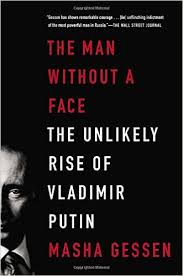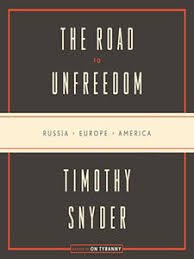1/ Stanley: Fascism is an ultranationalist, patriarchal, authoritarian movement based on an “us v. them” ideology, exploiting fears of the “other.” “Us” = members of the nation’s dominant ethnic group. The “others” or out-groups are characterized as lazy and criminal.
2/ The “lazy” and “criminal” tropes are consistent across different continents and fascist regimes. Immigrants in Europe today are characterized by right wing groups as lazy drains on the system. Often there’s a contradiction: The group is both lazy and out to get our jobs.
3/ All fascist movements talk about the nation’s mythic past. Mussolini (and Viktor Orban in Hungary) use the phrase: making the nation “great again.” Mussolini made clear the history was a myth created for national pride and to give the people an ideal to strive for.
4/ Fascists see democracy as corrupt because democracy requires concessions to different groups. They see compromising with out-groups as “corruption.” Therefore every fascist campaign is an “anti-corruption” campaign. The phrase, “Drain the swamp” originated with Mussolini.
5/ Nazis also ran anti-corruption campaign, by which they meant “root out those who are infecting the nation.” This is ironic because fascist are (by most definitions) corrupt: They are undemocratic and consolidate all the wealth and power into the hands of a small group.
6/ Thus another contradiction in fascist leaders: They use “anti-corruption” in the service of corruption. This is how Trump, with a history of shady and unethical business dealings, can run an anti-corruption campaign—and have it make perfect sense to his followers.
7/ Fascist leaders stir resentment by telling the dominant group that they are “cultural victims.” Example: Low income whites, who are victims of unregulated capitalism, have their resentment re-directed toward out-groups, who the fascist leader blames for their problems.
8/ No surprise nytimes.com/2018/08/15/wor… Trump’s war on the press? Very fascist. Oxford Scholar Guido Bonsaver explains that immediately after Mussolini took power, he turned his attention to controlling the press: ojs.zrc-sazu.si/primerjalna_kn…
9/ Trump’s war on the press, though, most closely mirrors Putin’s. Gessen on Putin’s beliefs: “The country is as great as the fear it inspires, and the media should be loyal.” From From Snyder: Putin controls the press by creating a world in which facts don’t matter.

10/ Putin’s method: Tell outrageous lies. Insist that everyone lies. Keep changing your story while your press (Fox, for Trump) acts like its normal. Eventually people conclude the truth is unknowable and they give up trying. It’s the ultimate skepticism and relativism.

11/ “His base doesn’t care what anyone at Yale has to say.” Exactly! Anti-intellectualism is another facet of fascism (from Stanley) twitter.com/tententacles/s… … I really do care, though. Do u? ![]() Yes! I do!
Yes! I do! ![]() And there are more of us.
And there are more of us.
12/ I know that fascism and authoritarianism have deep roots in America. I still find it hard to accept that we are in the midsts of a fascist takeover of the American government. Two hopes remain, in order of importance: The midterms and the Mueller probe.
I thought I’d add this: projects.fivethirtyeight.com/2018-midterm-e… 3 out of 4 isn’t a sure thing, but it’s hopeful. This isn’t left v. right any more. It’s fascism v. democracy. (Personally I trust the 538 aggregate more than any individual poll)






